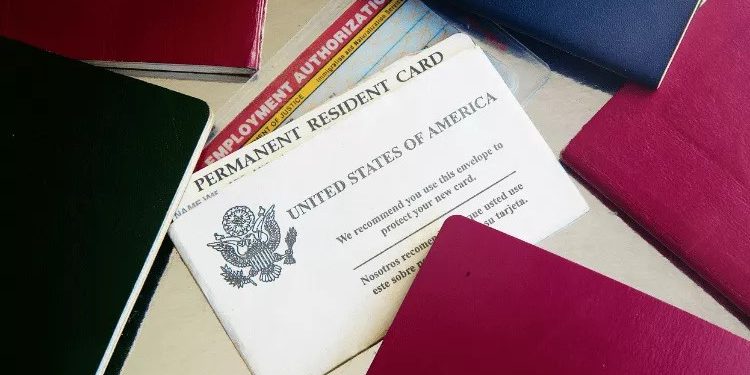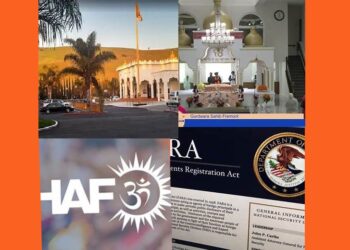In a bid to address the enduring predicament faced by numerous Indian-Americans stuck in the protracted green card backlog, a prominent Indian diaspora organisation has called upon the Biden Administration to ease regulations concerning the issuance of employment authorisation cards.
The Foundation for India and Indian Diaspora Studies (FIIDS) revealed that approximately 1.1 million Indian-origin non-immigrant visa holders are awaiting their priority date to become current for filing an I-485 application for a green card.
The organisation highlighted that the seven per cent country-wise quota limits their yearly approvals, leading to staggering delays of nearly 135 years. FIIDS estimated that over 400,000 individuals might never attain permanent residency in their lifetimes due to these extensive delays.
FIIDS advocated for the early issuance of Employment Authorisation Cards during the initial stages of green card processing. This measure, according to FIIDS, would alleviate uncertainties and distress for a significant number of Indian Americans, as well as their spouses and adult children.
Highlighting the pivotal role played by these individuals and their families in bolstering America’s competitive edge, Khanderao Kand, Chief of Policy and Strategies at FIIDS, emphasised their substantial contributions to the nation’s economy through innovation and enhanced diversity. In a letter addressed to Ur Jaddou, Director of the US Citizenship and Immigration Services (USCIS), Mr Kand underscored the necessity of acknowledging these contributions.
Mr Kand advocated for three significant measures, urging the USCIS chief to act promptly. Firstly, for Employment-Based Applicants, he called for the granting of Employment Authorisation Documents (EAD) to I-140 approved applicants for a period of five years without the need to wait for I-485 processing.
Secondly, he requested that spouses of applicants be provided with a five-year auto-renewal EAD, similar to the announcement made on 27th September, to liberate them from uncertainties and enable independent contributions. Lastly, for Documented Dreamers, he appealed to allow H4-EAD and extend their visa coverage from 21 years to 25 years, ensuring a stable status until they can pursue their own immigration pathways.
Mr Kand stressed the urgency of these appeals, considering the human aspect of the prolonged immigration delays and the significant potential these individuals bring to American society. He urged the USCIS to implement these changes promptly, asserting that such actions would not only ease the immense pressure faced by these families but also strengthen the United States as a nation that values and nurtures talent and diversity.
Terminology
- I-140 Approved Applicants: The I-140 form is an immigration petition filed by employers on behalf of foreign nationals seeking permanent residency (green card) in the United States. Approval of I-140 signifies that the employer has a valid job offer for the applicant and that the applicant meets the qualifications for the job.
- Employment Authorisation Document (EAD): An EAD, commonly known as a work permit, is a document issued by the United States Citizenship and Immigration Services (USCIS) that allows certain non-U.S. citizens to work legally in the U.S. for a specific period of time. EADs are usually linked to a specific job or employer.
- I-485 Processing: Form I-485, officially called the “Application to Register Permanent Residence or Adjust Status,” is the form used by immigrants to apply for lawful permanent resident status (a green card) while living in the United States. The I-485 application is typically filed after the employer’s I-140 petition is approved, and it signifies the final step in the green card application process.
- H4-EAD: H4-EAD refers to the Employment Authorisation Document issued to spouses of H-1B visa holders. The H-1B visa is a non-immigrant visa that allows U.S. companies to employ foreign workers in speciality occupations. H4-EAD allows spouses of H-1B visa holders to work legally in the U.S.
- Documented Dreamers: This term refers to individuals who were brought to the United States as children, often referred to as Dreamers. While not explicitly mentioned in the context, it likely refers to individuals who have some form of legal documentation (such as H4 visas) but are still facing challenges related to their immigration status and work authorisation.











